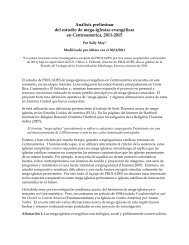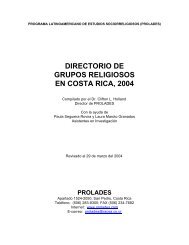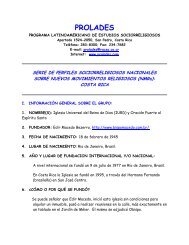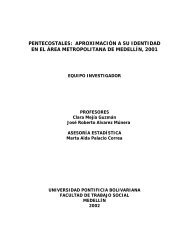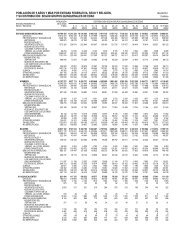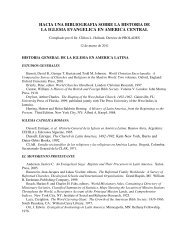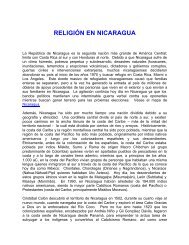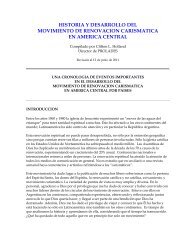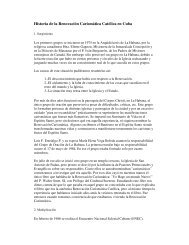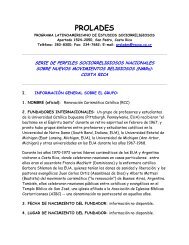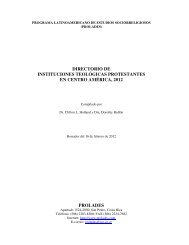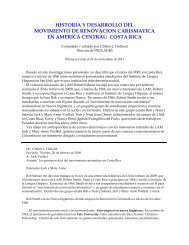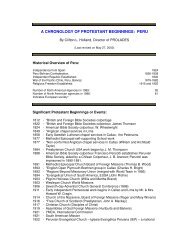belize, 1980 - Prolades.com
belize, 1980 - Prolades.com
belize, 1980 - Prolades.com
Create successful ePaper yourself
Turn your PDF publications into a flip-book with our unique Google optimized e-Paper software.
capital of Belize City that is located at near sea level on the Caribbean coast. The government was<br />
moved to Belmopan in 1970, and its National Assembly Building is designed to resemble a pre-<br />
Colombian Maya temple.<br />
Today, the nation’s economy is less dependent on forestry products and more dependent on<br />
exports of sugar, citrus, bananas, mangoes, rice, honey and other agricultural and fishery products,<br />
as well as on the growth of the tourism and garment (sewn from imported textiles) industries. Onethird<br />
of the work force is employed in agriculture, forestry and fisheries, which generate about half of<br />
the gross national product. Sugar accounts for 60% of Belize’s agricultural exports. Most of the<br />
food consumed nationally is produced by small farmers. Medium-sized Mennonite farms supply the<br />
country with dairy products, poultry and vegetables, and subsistence farmers produce most of the<br />
hogs for the national market as well as some corn, rice and beans for local markets. Large farms<br />
are oriented to produce export crops and beef cattle.<br />
II. OVERVIEW OF STATUS OF CHRISTIANITY IN BELIZE: <strong>1980</strong><br />
The country of Belize is predominantly a Christian nation (93.7%), according to the <strong>1980</strong><br />
Census: 62.0% of the national population claimed affiliation with the Roman Catholic Church,<br />
32.7% were affiliated with Protestant denominations, 1.2% were affiliated with other minority<br />
religions (Judaism, Hinduism, Islam, Bahai, Chinese religions, Jehovah’s Witnesses, etc.), and<br />
4.1% reported no religious affiliation or gave no answer.<br />
A <strong>com</strong>parison of census data for 1970 and <strong>1980</strong> reveals that the smaller denominations<br />
have grown at the expense of the larger, more established, ones. Thus, the Roman Catholic,<br />
Anglican and Methodist churches have all shown decreases in affiliation of between 2% and 3%.<br />
The religious groups that have recorded the most increases in affiliation have been the Pentecostals,<br />
the Moravians and the Mennonites, the later by immigration and high birth rates.<br />
Remnants of African Spiritism are acknowledged to exist among Belizeans of African or<br />
West Indian descent, called Creoles, who are predominately Protestant by heritage, although few<br />
attend church regularly. The Black Carib or Garifuna, an Indigenous people of mixed Indian and<br />
Negro origin (called sambos by the Spanish), are largely animist and constitute the largest non-<br />
Christian element within Belizean society. Nominal Christianity, both among Catholics and<br />
Protestants, characterizes most people of Belize.<br />
III.<br />
ETHNIC GROUPS AND UNREACHED PEOPLES<br />
3.1 CREOLES (40.0%, <strong>1980</strong> Census): NEGROES AND MULATTOS<br />
The Creole or Kriol are descendants of African slaves (Negroes) who were brought,<br />
primarily from Jamaica, the West Indies and Nicaragua's Mosquito Coast, by British and other<br />
European settlers to cut down logwood and mahogany trees in British Honduras and ship wood<br />
products to foreign markets (ca. 1650-1850). Many slave owners engaged in sexual relations with<br />
female slaves, thereby created this new ethnic group (originally called mulattos).<br />
In Belize, Creole is the standard term for any black person who is not Garifuna, or any<br />
person that speaks Creole as a first language. This includes immigrants from Africa and the West<br />
Indies (African-origin) who have settled in Belize and intermarried with the local inhabitants.<br />
Historically, most Creoles are Protestants and were at least nominal members of the older<br />
denominations (Anglican, Methodist, Baptist and Seventh-day Adventist) that arrived in Belize prior<br />
9



